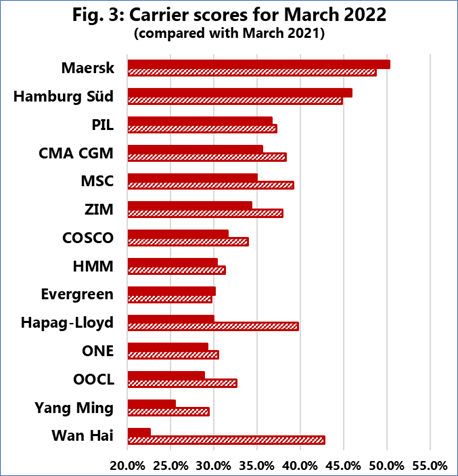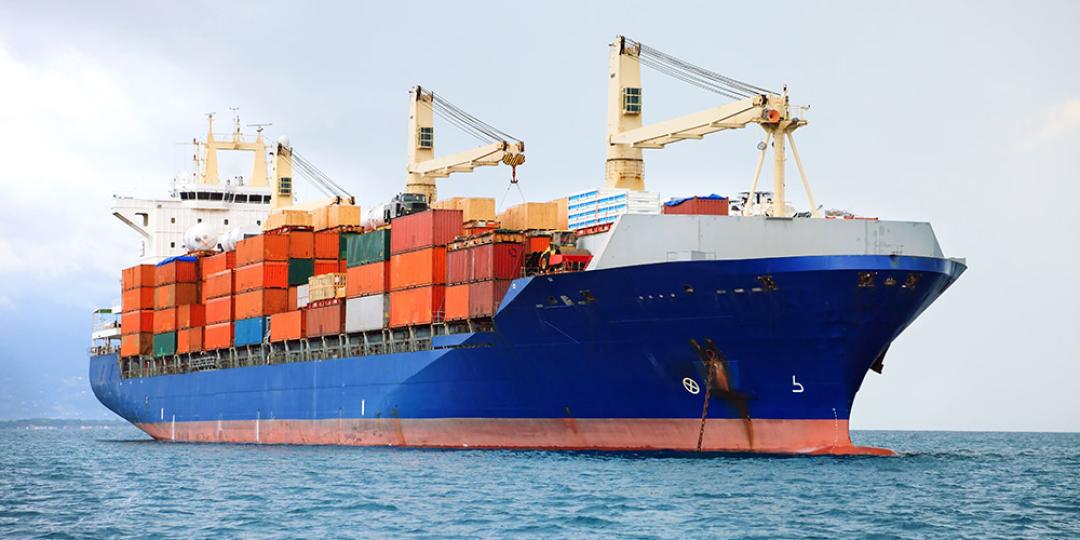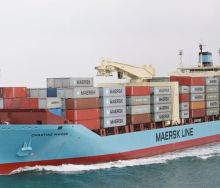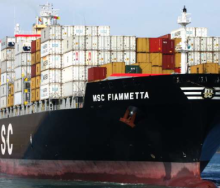Global schedule reliability is slowly edging up, with a marginal month-on-month (m-o-m) improvement in March – the second month in a row.
That’s according to the latest Global Liner Performance (GLP) Report released by maritime consultancy Sea-Intelligence.
This year’s March figure registered 35.9% - but despite being the highest 2022 reliability figure so far, it’s still slightly lower than the 2021 level.
The average delay for late vessel arrivals decreased once again, this time by -0.32 days to 7.26 days. “Despite the improvement, the average delay figure has now been over seven days since August 2021 and continues to be the highest across each month when compared historically,” said Sea-Intelligence CEO Alan Murphy.
February saw the first significant m-o-m improvement in reliability of 4.0 percentage points, reaching 34.4% - the first significant m-o-m improvement since March 2020, according to the report.
The average delay for late vessel arrivals also improved m-o-m in February, decreasing by -0.77 days to 7.11.
Aggregated figures for 2021 saw reliability drop to a staggering 35.8%, down from 78.0% in 2019 and 63.9% in 2020 – a reflection of the severe port challenges globally and their impact on carrier schedules.
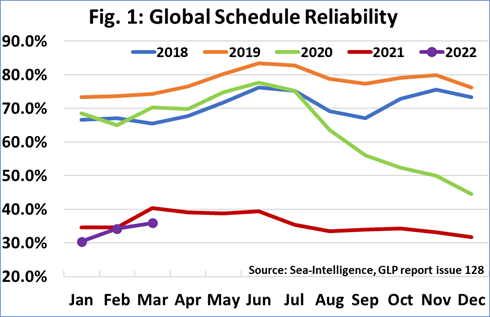
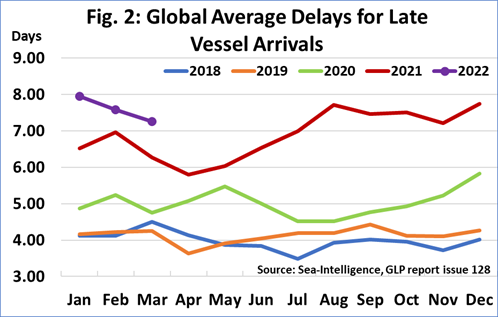
An analysis of individual lines reveals that Maersk was the most reliable carrier recording a figure of 50.3%, and was the only line with a score of over 50%, followed by Hamburg Süd at 45.9%.
There were seven carriers in the 30%-40% range and five in the 20%-30% range.
Ten carriers were within eight percentage points of each other in March.
The GLP report is comprehensive and covers schedule reliability across 34 different trade lanes and 60+ carriers. This report covers the global highlights.
